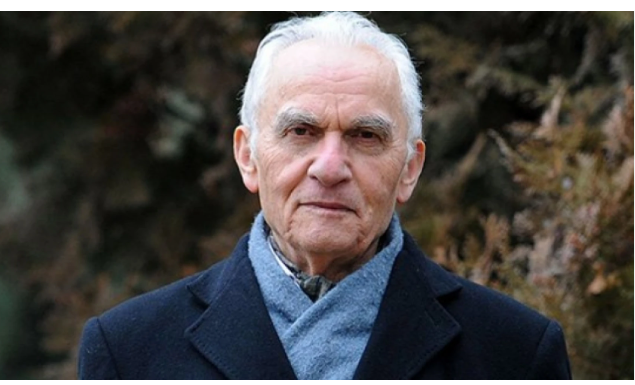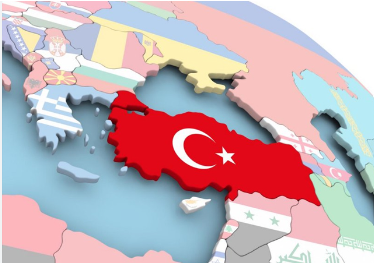In an Op-Ed piece published in Arab News, former Foreign Affairs Minister Mr Yasar Yakis explains Ankara’s foreign policy challenges. “The EU And US Remain Hesitant To Fully Embrace Turkey” he states. He is critical of EU’s reluctance to give Turkey stronger incentives for economic and political reform, while Turkey and US disagree on multiple fronts. His conclusion is ironic: At least, Turkey is in the news again…
Here are highlights from his Op-Ed piece:
EU prevaricates, again
A semblance of change occurred three weeks ago in the EU’s attitude toward Turkiye. Josep Borrell, the EU’s high representative for foreign affairs and security policy, and Oliver Verhelyi, the European commissioner for neighborhood and enlargement, made comprehensive statements about the state of EU-Turkiye relations.
The first sign of this positive development came from the European Council on June 29-30, when it invited Borrell and the European Commission to submit a report on EU-Turkiye relations and how they might proceed in a strategic and forward-looking manner. Some analysts viewed this as a sign of a positive approach.
The EU General Affairs Council then signaled that it was ready for “engagement” with Turkiye. The statement from the council underlined the fact that Turkiye is a candidate for EU membership and a key associate in various areas — as if this were new information; these facts were known by all sides though none pronounced it loudly.
Turkey’s strategic location is still being ignored
The Middle East is in turmoil. The war in Ukraine has almost reached a stalemate. Turkiye and Greece have made positive steps towards each other. In light of these developments, many observers in Turkiye thought that the EU had decided to come up with a positive agenda for relations. Meanwhile, other signs indicated that the Euro-Atlantic community was making fresh overtures to Turkiye. The atmosphere was suitable for this to happen because countries needed the support of other countries during these uncertain times.

The EU turned out to be generous in promises but not in deeds. The report by Borrell and Verhelyi was expected to be submitted to the EU summit. However, an invisible hand withheld its publication.
Too many disagreements with US
On the transatlantic front, the issues related to relations with Turkiye are slightly different. At first glance, it looks as though the most important immediate issue for the US in Europe is Sweden’s accession to NATO, but in reality a more pressing issue involves an agreement between the US Congress and the Turkish parliament. Turkiye wants to resolve questions about its proposed purchase of 36 F-16 fighter jets and upgrades to 80 of the aircraft already in the possession of the Turkish Air Force, while Congress wants to hold the string in its hands.
The two issues are related because the US wants Sweden to be swiftly admitted to NATO; meanwhile Turkiye, while trying to reach an agreement with US authorities on the purchase of the F-16s, has informed Washington that a motion on whether or not to approve Sweden’s NATO membership has been submitted to the Turkish parliament for consideration.
Disagreements between Turkiye and Sweden have therefore become a source of friction between the US Congress and the Turkish parliament. To speed up the process, Turkish President Recep Tayyip Erdogan has proposed that motions be submitted simultaneously to Congress and the Turkish parliament. Neither side is prepared to become the first country to cut the cord.
Of the two countries, the US is the more likely to drag its feet here. Turkiye is not likely to oppose US wishes if the question of the deal to purchase and upgrade the F-16s is resolved. Sweden’s accession to NATO has therefore become something of a side issue.
Aside from the question of Sweden’s membership in NATO, however, there is a long list of other disagreements between Ankara and Washington to be addressed and resolved. Erdogan has therefore been eager to discuss Turkish-US relations at length with US President Joe Biden. One such chat took place recently when the two leaders talked for about an hour on the phone.
The details of the conversation issued by the two sides do not match each other precisely. The text published by the Turkish presidential office emphasized that the humanitarian crisis in Gaza must be addressed immediately, and the need for the US to withdraw its blanket support for the actions of Israel during the war, while warning that a prolonged and escalating crisis will have grave consequences for the region and the world.
The White House, on the other hand, highlighted the importance of strengthening the NATO alliance and reiterated Israel’s right to defend itself.
Another hot topic in relations between Ankara and Washington is the recent joint military maneuvers involving US forces in Syria and the Syrian Democratic Forces, the backbone of which is made up of members of the Kurdistan Workers’ Party, or PKK, which a number of countries, including Turkiye, consider to be a terrorist organization. This is perceived by Turkiye as a more important issue than any other and Erdogan is likely to raise it with Biden at the NATO summit.
Meanwhile, there was praise from Russia when President Vladimir Putin, during his annual news conference, said that Erdogan was playing a significant, leading role in efforts to resolve the situation in Gaza.
Turkiye’s problems will not be resolved overnight, and its role in efforts to end the war in Gaza might not prove crucial, but the mere fact that the name of the country is being mentioned internationally in a positive context makes it easier to work toward solving at least some of the problems it faces.
Follow our English language YouTube videos @ REAL TURKEY: https://www.youtube.com/channel/UCKpFJB4GFiNkhmpVZQ_d9Rg
And content at Twitter: @AtillaEng
Facebook: Real Turkey Channel: https://www.facebook.com/realturkeychannel/
